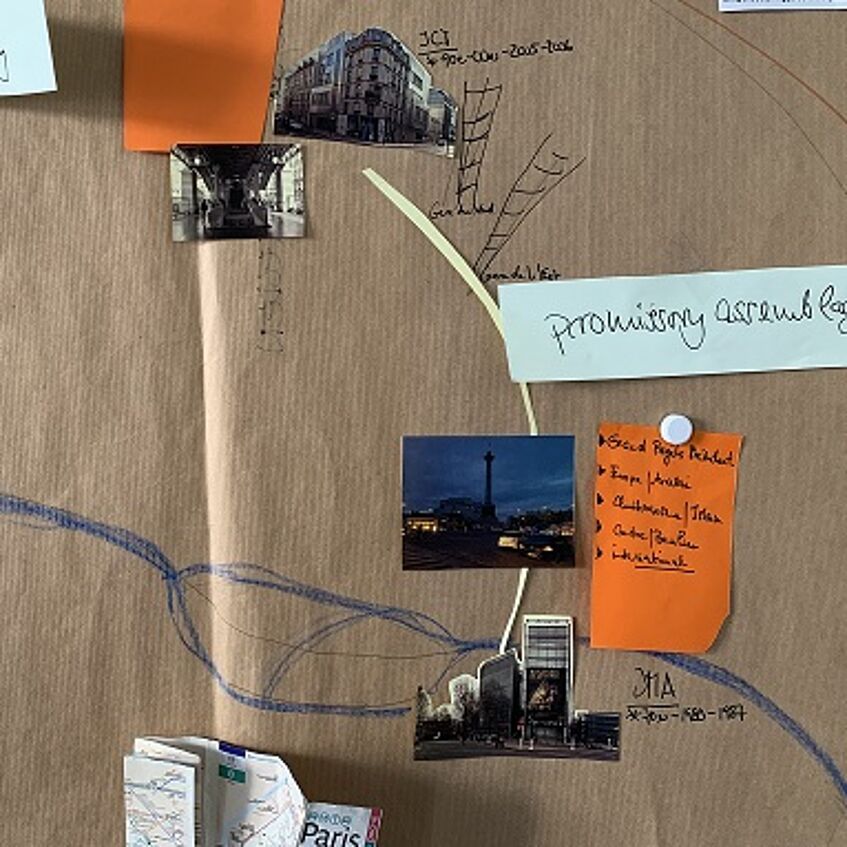Cultural institutions and urban promises in Paris: Reconstructing, traversing and disrupting polarisations
For some years now, I have been conceptually engaged with the relationship between the city and promises. I am interested in how promises "come into the world" and what they achieve - partly also how we can free ourselves from them. One starting point for empirically pursuing these questions from the perspective of urban and knowledge anthropology can be urban cultural institutions: Their foundations go back to certain interests, they have raised expectations and produced associated promises.
The Institut du monde arabe (IMA) in Paris, for example, materialises the promise of modernity through its building, its role within the Grands Projets in the 1980s stands for the promises of urban transformation, its program constantly articulates new promises to represent "the" Arab world. By reconstructing the history of the IMA since its projection in the 1970s, I examine the historical conditions of these "promising situations", which are only partly cultural-political in nature. As a second, younger and urban cultural institution, I examine the Institut des cultures d'islam (ici). In addition to analysing documents, conversations and interviews, I am elaborating the spatial experience of this and other urban promises with mobil(ising) ethnographic methods of "itinéraires". These ethnographic walks are designed, on the one hand, to explore the potential connections between the IMA and the ici, such as the polarised social atmosphere. But they also digress, leaving space for the contingency of the urban experience. Exploring this messy situation provides the basis for interrogating the stably unstable binding power of promises. (Since 1998)
Team
Alexa Färber
Funding
various
Project duration
Since 1998

